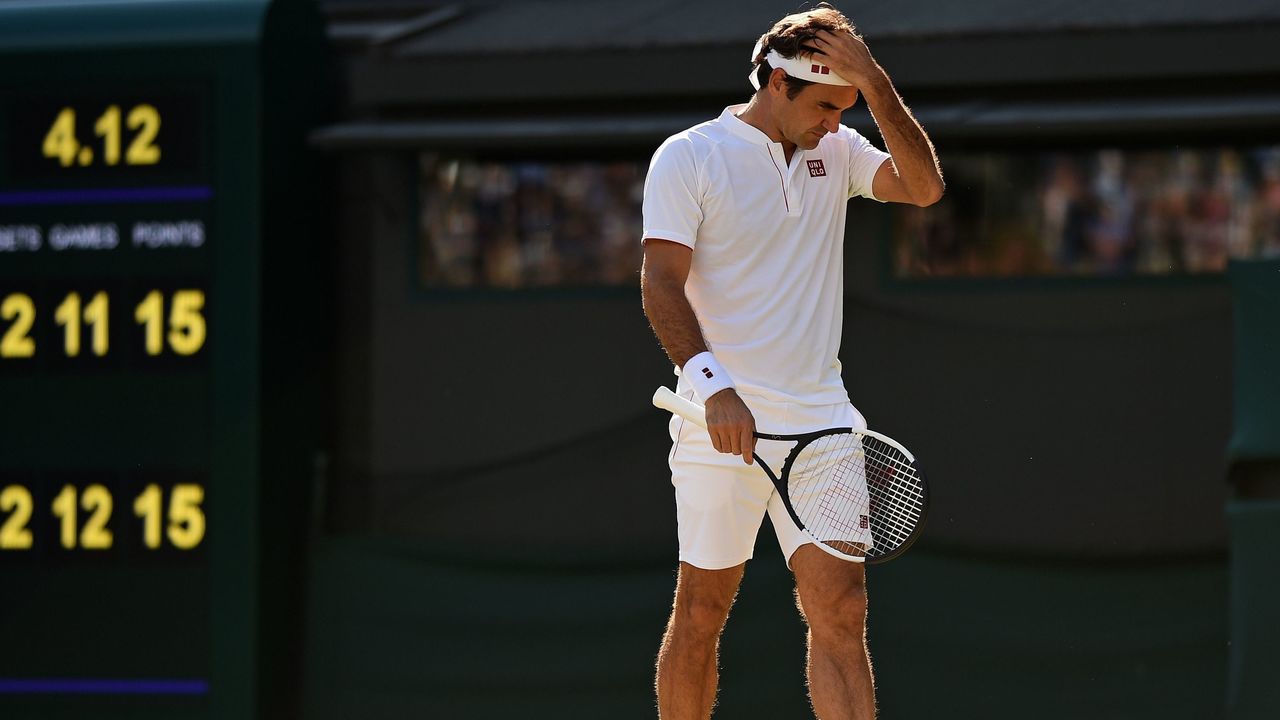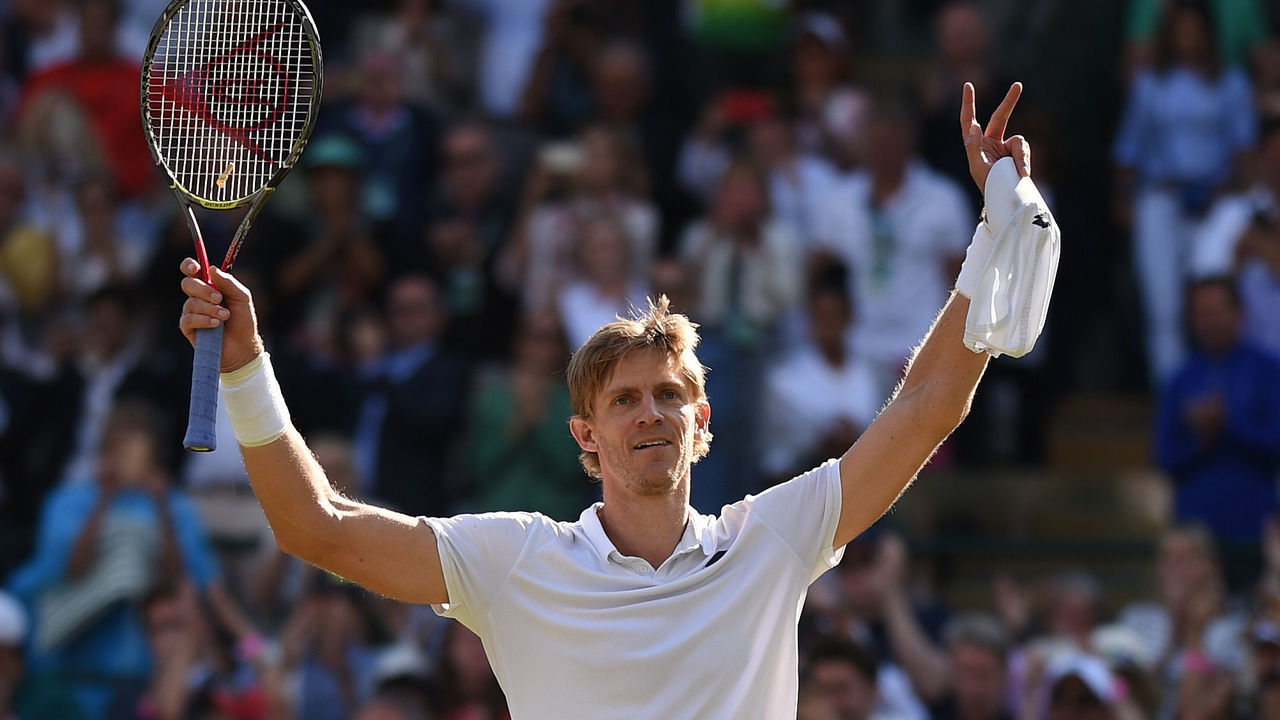As Anderson rises, Federer falls in all-too-human performance
Everything was going according to script for Roger Federer and Kevin Anderson in their Wimbledon quarterfinal on Wednesday.
Federer won the first set in just 26 minutes while dropping just one point on his serve. He had a bit more trouble in the second, getting broken for the first time in the tournament early on, but he recovered the break and eventually won the set in a tiebreaker. The two traded holds in the third until Federer earned a match point on Anderson's serve in the 10th game, and if it hadn't already, the outcome of the match at that point very much seemed like a foregone conclusion.
Federer, an eight-time Wimbledon champion, had at that point won 34 consecutive sets at the All England Club, equaling his own record. He had a 266-2 lifetime record at Slams when winning the first two sets, and had never lost at Wimbledon after holding match point. Anderson, who was playing in his first Wimbledon quarterfinal at age 32, had to that point failed to take a set off Federer in four-and-two-thirds head-to-head matches.
Scoreline aside, Federer simply didn't seem particularly troubled. He was handling Anderson's blistering serve with deft block-backs and chip-shot returns, attacking decisively, making Anderson hit tricky shots from his feet, and generally controlling the shape of the rallies. Whether he won the match on that point or not, there was no doubt that he would, ultimately, win it. But, well, this is why we watch sports. Anderson saved match point, and then held serve, and then started unloading on his returns and broke a suddenly wobbly Federer. He looked like he'd give it right back when he went down 0-40 in his ensuing service game, but Federer, despite getting a couple good looks on second-serve return points, couldn't capitalize, and Anderson finally closed out the set with an ace.

From that point on, Anderson had control of the match. Even though Federer still held the lead in sets, and continued to come up with timely service winners, it was Anderson who dictated points, more consistently changed the direction of the ball, crushed his forehand, and kept Federer pinned deeper in the court. Anderson raised his level, and Federer simply couldn't raise his to match. His returning slowly and steadily went south, he got progressively more tentative with his groundstrokes, and found increasingly few opportunities to approach. He waited for a hiccough that never came. All of this represented a departure from his M.O., especially when playing with a lead.
It was a departure for Anderson, too, who has so often been on the other side of the comeback/collapse duality, known for getting tight in big spots and struggling to close. He'd lost from two sets up five times, including thrice at Wimbledon. But the big South African, who broke through to make his first Slam final at the US Open 10 months ago, played with the calm assurance of someone who expected to win.
"I just kept on telling myself, 'I have to keep believing,'" Anderson said after the match.
Even with Federer stuck in neutral, the fifth set put his nerve to the test time after time. With Federer serving to open the set, Anderson was playing from behind the entire time, having to serve to stay in the match on seven occasions. Each time he held without even ceding a break point.
Federer, who'd been equally dominant on serve, finally blinked in the 23rd game of the set, when he double-faulted for the first time in the match at 30-all to gift Anderson the first break chance for either player in the fifth. He then handed him the game by netting a routine forehand. There was no letup from Anderson with the titanic upset on his racket. After dropping a nervy opening point, he ran off four straight to clinch the biggest victory of his career.

"I kept saying that today was going to be my day," Anderson said.
On the other side, Federer admitted: "There are moments that you rise to the occasion, and I didn't. It just happened that today wasn't the day."
It doesn't have to be much more complicated than that. Federer described it as an "average" performance, which still would've been good enough on most days, and was still very nearly good enough on this day, even against a zoning Anderson. Playing tentatively with a lead, looking too far ahead with the finish line in view, preferring to play it safe and hope your opponent makes mistakes ... these are decidedly human impulses. It's just that we've come to expect superhuman feats from the soon-to-be 37-year-old who'd won three of the last five Slams he'd played and 20 Slams overall.
But, sometimes, it's just not your day. Much like Father Time, humanity remains undefeated.
(Photos courtesy: Getty Images)